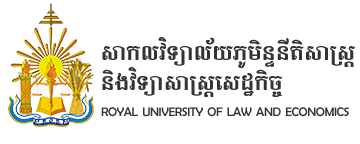Caroline Docclo Caroline Docclo is admitted as an avocat spécialiste en droit fiscal at the Brussels Bar. She earned her special degrees in economic law and tax law from the Université libre de Bruxelles and her LL.M. in Taxation from the New York University.
She practices in the Brussels office of Loyens & Loeff and is also is a professor of tax law at the University of Liège and the Université libre de Bruxelles. She represents Belgium at the Permanent Scientific Committee of the International Fiscal Association and is a past president of the Belgian branch of IFA.
She is appointed by Belgium as an “independent person of standing” for the purposes of both the EU Tax Arbitration Convention and the EU Tax Arbitration Directive.
– “Reconstructing the treaty network”,
Co-author: Piet De Vos,
Belgian report in view of the 2020 IFA congress in Cancun
Cahiers de droit fiscal international, vol. 105a, 2020, p. 167 à 190;
– “The European Union’s Ambition to Harmonize Rules to Counter the Abuse of Member States’ Disparate Tax Legislations”,
Bulletin for International Fiscal Documentation, 2017, p. 367 à 378;
– “Belgium v. NN (L) International : Tax, Yes ; Penaty, No” (Comments on CJUE, 26 May 2016, C-48/15),
Tax Planning International, European Tax Service, June 2016, p. 2 à 4;
– “GIMLE. Principle of a true and fair view of company’s assets set out in Fourth Directive 78/660/EEC. Court of Justice (Comments on CJUE, 3 October 2013, C-322/12),
Highlights & Insights, 2013/12.143, p. 34 à 44;
– “Exchange of Information and the Cross-Border Cooperation Between Tax Authorities”,
Co-author: Sandra Knaepen,
Belgian report in view of the 2013 congress in Copenhagen
Cahiers de droit fiscal international, vol. 98b, SDU Uitgevers, La Haye, 2013, p. 133 à 153;
Course: International Tax Law
Course Modalities:
–Hourly Volume: 15 hours;
–Scheduled: December;
–Programs: International Executive Master in International Business Law (ULB), Year 2;
Course Overview: This course aims to provide students with a thorough understanding of the fundamental principles of international tax law applying to income companies earn in overseas operations. It looks into tax treaties to explain how the collection of tax revenues is organized and how anti-avoidance rules are implemented.
Course Structure:
Module 1 – Basic principles of international taxation
Module 2 – Scope of Double Tax Treaties
Module 3 – Treaty Interpretation
Module 4 – Business Profits and Income from Personal Services
Module 5 – Employment Income
Module 6 – Passive Income
Assessment:
A final examination composed of different cases is organised at the end of the course.


